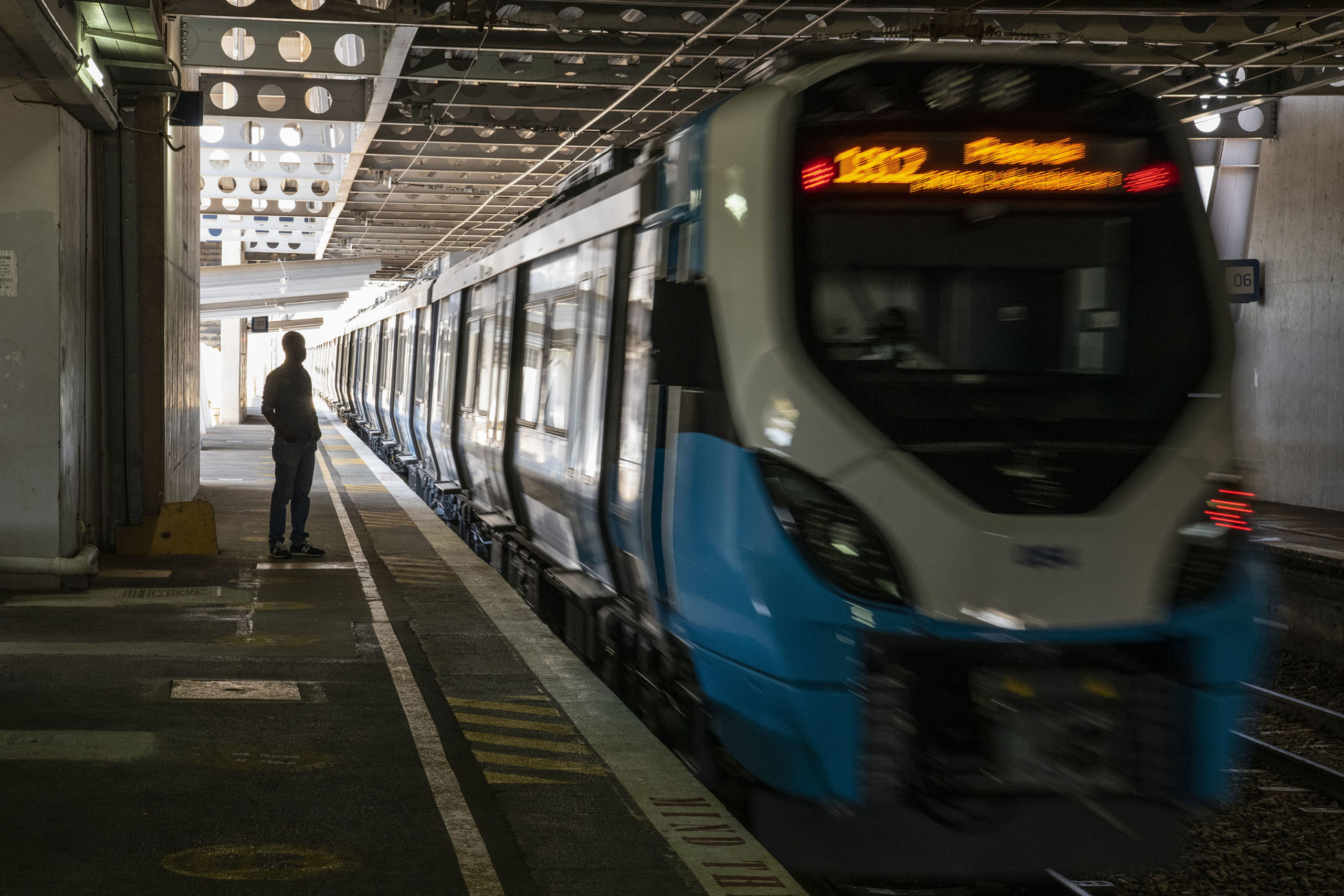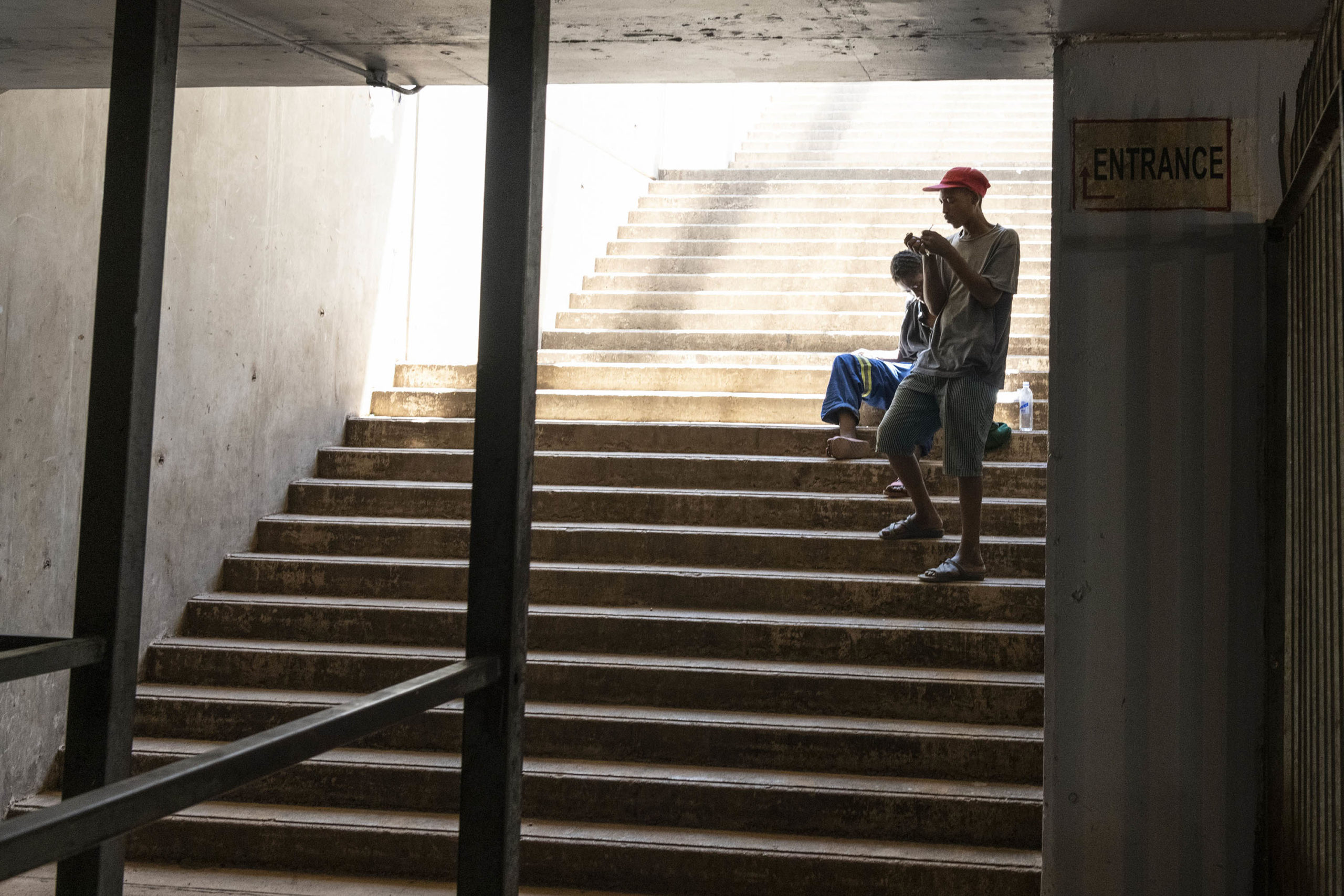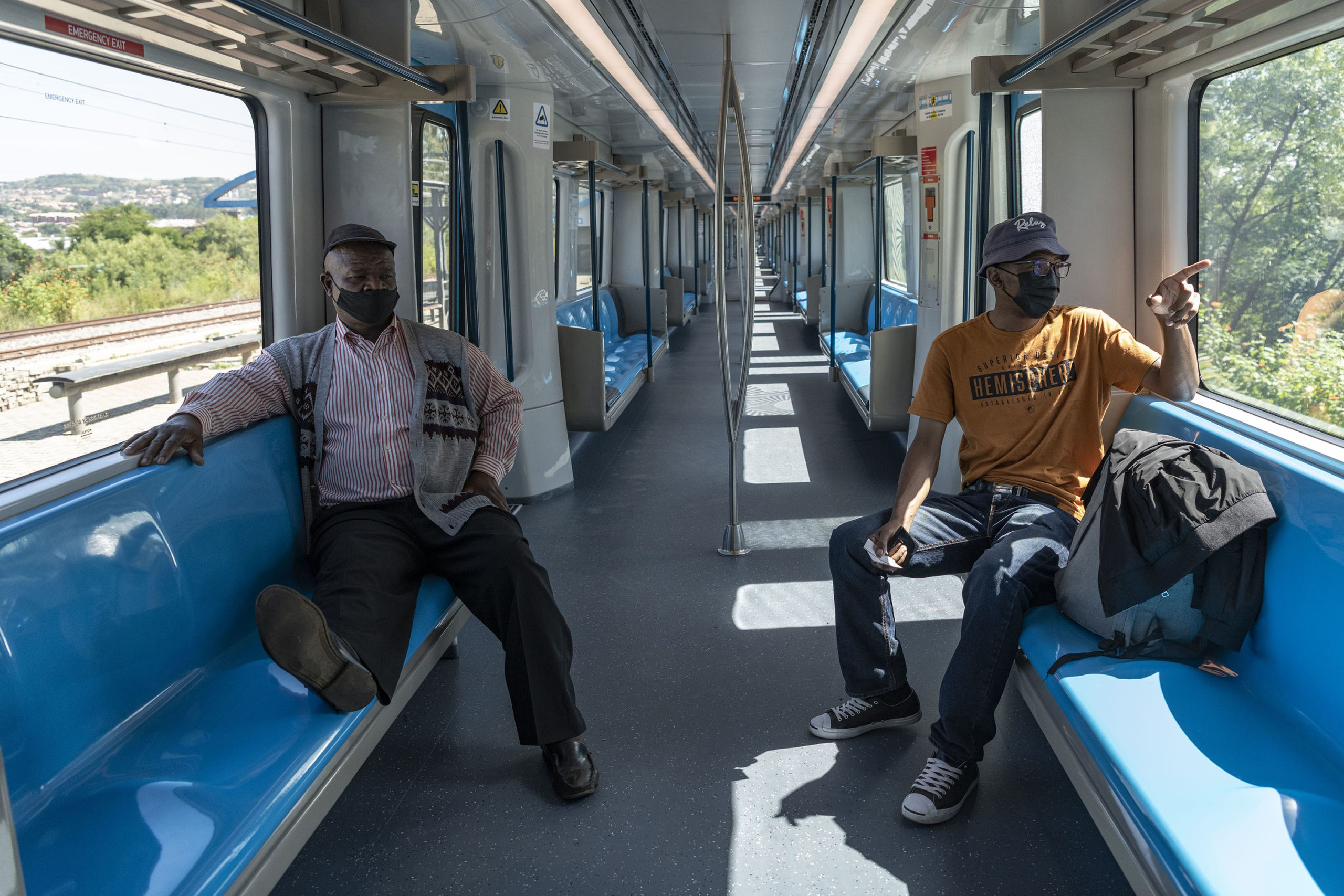Prasa is ‘taking food from our mouths’
After reopening certain stations, the Passenger Rail Agency of South Africa has prohibited trading on trains, leaving the sellers who rely on commuters out of pocket.
Author:
2 March 2022

A regular rhythm is returning to the Mabopane-Pretoria commuter rail line after it was shut down for refurbishment in August. With its new fleet of trains, the Passenger Rail Agency of South Africa (Prasa) started to reintroduce limited services from mid-January. But the clank-a-clack of trains arriving and departing from platforms has been sanitised of the hollers, wails and whistles of fruit and vegetable vendors, who have historically earned their keep aboard the trains and on platforms.
Many are eager to return to selling their fresh produce. But Prasa does not want them on the new stock of trains. “We are going to build dedicated trading areas outside stations for hawkers and vendors. We will not be allowing them to do it on the new trains,” says Andiswa Makanda, the newly appointed spokesperson of the rail agency.
This is part of Prasa’s new policy to protect infrastructure. Makanda says that “having hawkers selling their veggies on the trains would make it difficult to keep the trains clean and safe for other commuters”. The rail agency wants all Tshwane stations functional by the end of March and fully refurbished by December.

But Prasa’s policy is not landing well with vendors. Many say they are central to commuter rail culture and a large part of the economic sector. As important stakeholders, the vendors say they deserve access.
It has been almost a month since the train service has been partially operating in some parts of Tshwane. Vendors are absent from many stations. Prasa senior communications manager Tony Games, who has been with the rail agency for more than two decades, accompanies us as we travel the Pretoria-Mabopane line. The trip uncovers the extent of the damage the rail system sustained during Covid-19 lockdowns and gives insight into the working conditions of vendors who rely on the railway line for business.
A growing market
As the train winds through the bushy terrain north of the city, Games points out the scars left by the cable theft and vandalism that has added to the crumbling of the rail system. During a short stop at Pretoria North station, he gestures at the decommissioned locomotives. “You see these ones. Nyaope boys were breaking into them and stealing aluminium panels and handles. They started eating them even before the lockdowns,” he says. “It’s bad because sometimes, just by looking at them, you can’t tell between nyaope boys and those who are working as vegetable hawkers.”
However, though vandalism and theft are the symptom, the history of corruption, maladministration, and financial mismanagement at Prasa, documented through myriad independent investigations and court documents is the real cause of the rot.
As we head towards Soshanguve station, the train passes through shack settlements. Pedestrians wait to cross the railway line. Children play near the tracks. As we move on, Games points at heaps of rubbish: “You see there, we have a problem of illegal dumping too.”
Along with being “strict against vandalism and littering on the trains”, Games says the rail agency has plans to build high walls to keep people off the railroad. “This will protect our infrastructure and the people too … Can you imagine what happens if these children playing there are hit by a train? Disaster!” Game’s voice reverberates through the train, empty of the scamper and chatter of vendors.
We arrive at Mabopane station, the old terminus. Bare, broken concrete pillars claw into the air like exposed ribs from a rotting beast. Unlike other vandalised stations that have been abandoned by both commuters and the communities around them, Mabopane station is an active carcass.
Standing on the platform, we are accosted by the sounds of activity from the market outside. The funk from broken sewage pipes and brazier smoke smell like life, but Mabopane station is a skeleton of its former self. Scrap metal collectors and other foraging parties have eaten away at the structure of the building. Much of the bricks and the corrugated iron roofing have been taken.
But the suspended train services did not stop the marketplace from growing. Over the years, the market at Mabopane station has grown with shacks and stalls servicing train commuters and those coming to and from the attached bus and taxi terminuses. Street sellers use every nook and cranny of Mabopane’s ramshackle structure.
Along with traders and commuters, the Mabopane station market is thick with gamblers, and nyaope addicts. These boys are visible by their staggering and their loose limbs, sleepy faces and dead eyes. Some share needles or smoke their fix in the station’s broken and boarded-up staircases after doing their mid-morning rounds of begging. Others stand with cupped hands and sweaty faces, high and held up by the wobbly poles of makeshift stalls.

Static stalls are unsustainable
One of these stalls, located near the station’s gates, belongs to Rose Mamphwe, 55, a mother of three. She’s been a street seller at Mabopane since 2009. “I’ve sold things at the train stations all my life. I was working from Soshanguve station before. I started at Daspoort in 1998,” she says.
Mamphwe says she prefers to trade from her stall and not from the train. “I used to send young boys to sell on the train for me. Now I can’t send these ones. They have been finished by nyaope. These ones are not alive anymore,” she says, pointing at two boys crouched at a nearby stall. Mamphwe feels it is unfair that Prasa is not allowing vendors back on trains. “It’s more work [to sell on trains], but the money is good,” she says.
According to another street seller, Mike Rababalela, 32, the prohibition is “taking food from our mouths”. Rababalela explains that being stuck at one place outside the station makes his business unsustainable. “We don’t make anything because we sit, wait and hope somebody comes to buy. On the trains, people are relaxed and sitting down. You can convince them to buy. At the station they are rushing to catch a taxi or a bus. They have no time,” he says.
Selling on the trains provided good margins for Rababalela. If he gave stock worth a R1 000 to a vendor to sell on a train, he would make about R350 profit, keeping R200 for himself and giving the seller R150. “If we are sitting and waiting, I can’t grow my stock and have other people sell for me like this,” Rababalela says.

He does not see another way to return to profitability. Rababalela warns that being bogged down at the station also means more quarrels. “Sitting here we sometimes just argue and people fight. It’s because there’s no customers so competition is too high and we are all hungry.”
Rababalela is hopeful that with time the rail agency might be persuaded to reconsider its restriction. “Like with everything, we should be able to talk it through. I think they are worried now because the trains are new and they don’t want people to break them,” he says. Though Prasa has not indicated that it will change its position, it would not be the first time the rail agency has softened a tough stance on vendors.
The rail agency, known then as the South African Rail Commuter Corporation, acquired 7 224 new trains in 2004. With the renewed fleet, there was a heightened focus on security and maintenance. Many train vendors were at loggerheads with the police and private security personnel who arrested them for various infractions. Over time, however, the restrictions were eased, or at least their enforcement was, and vendors were able to work with greater freedom.
Many traders are hoping something similar will happen over time. Mamphwe is banking on it: “For me, it is my only hope to feed my family. I am a mother and father in one as you see me here. This is my life.”
As we head back to the platform, the contradictions facing Prasa are clear: the rights of commuters to a safe, clean and uninterrupted journey competes with the economic needs of the communities the railway line supports.





